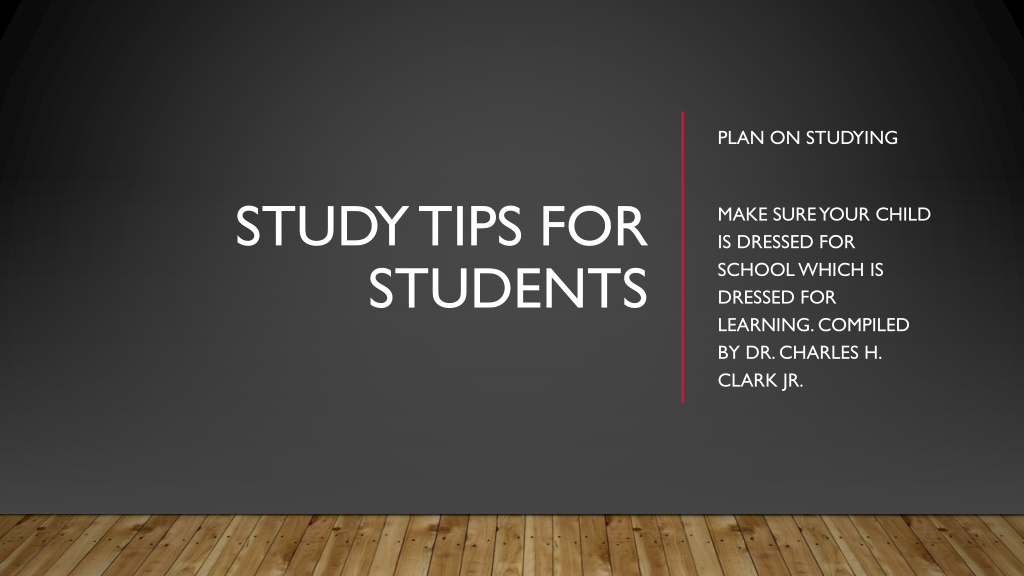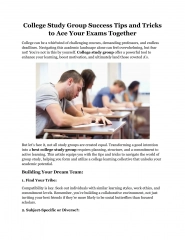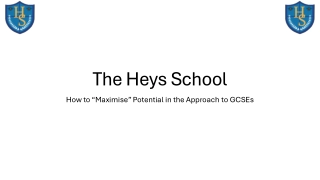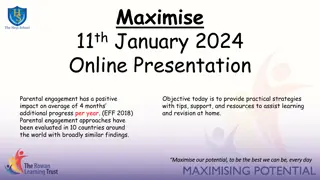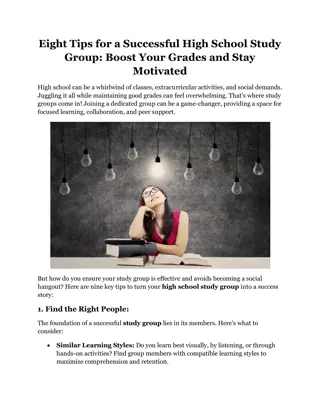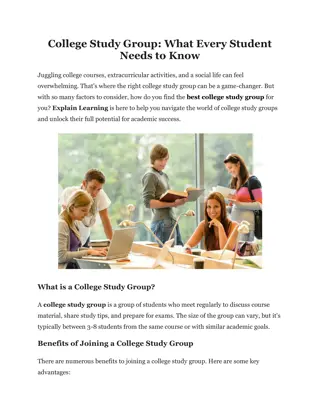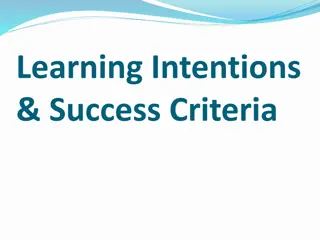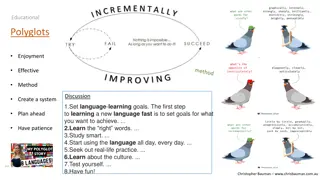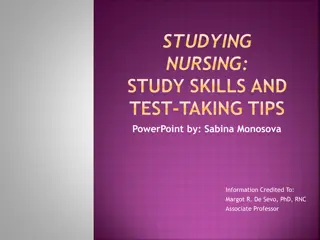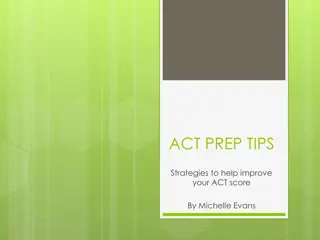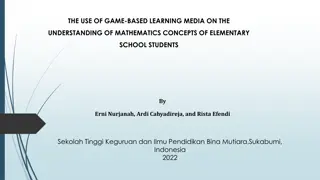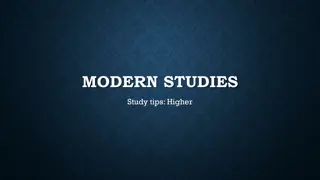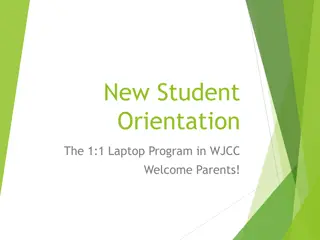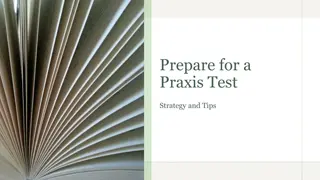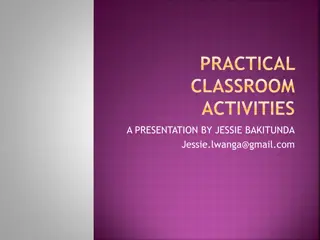Effective Study Tips for Students to Boost Learning
Encouraging students to study in a consistent place, avoid last-minute cramming, utilize agenda books, stay organized, and create study tools like flashcards can greatly enhance their learning outcomes. These tips, compiled by Dr. Charles H. Clark Jr., emphasize the importance of good study habits and preparation strategies for academic success.
Download Presentation

Please find below an Image/Link to download the presentation.
The content on the website is provided AS IS for your information and personal use only. It may not be sold, licensed, or shared on other websites without obtaining consent from the author. Download presentation by click this link. If you encounter any issues during the download, it is possible that the publisher has removed the file from their server.
E N D
Presentation Transcript
PLAN ON STUDYING STUDY TIPS FOR STUDENTS MAKE SURE YOUR CHILD IS DRESSED FOR SCHOOL WHICH IS DRESSED FOR LEARNING. COMPILED BY DR. CHARLES H. CLARK JR.
10. SELECT A CONSISTENT PLACE TO STUDY Some people need total quiet while others can study well with music in the background. The key is to find a comfortable place and study there regularly, such as the kitchen table, a desk, a favorite chair, bed, etc.
DONT WAIT UNTIL THE LAST MINUTE Study a little every night instead of cramming late the night before the test. A good night s sleep helps. Bleary eyes and a tired body do not.
BUY AN AGENDA BOOK AND USE IT Most students have an agenda book, but they don t write anything in it. On Monday, write down all of the week s assignments. Most teachers have them posted in the classroom.
DEDICATE A SPACE FOR EVERY CLASS IN YOUR BOOK BAG Keep papers separated by class with a binder. There should be a place for class notes, handouts and homework assignments. Some of the larger binders can accommodate all classes. It is really a matter of personal choice; just keep papers separated by class.
STAY ORGANIZED THROUGHOUT THE YEAR Most students have many binders and folders, but they do not use them. Many stuff every single paper from school into one binder. Half of their papers become misplaced or lost. Do not use the shove method when papers are returned, i.e. shove everything in one binder. Place them in the correct folder. If you are using a three-ring binder to keep papers organized, take the time to open the metal prongs and place them securely in it. If someone helps you organize your papers, take the time to continue putting everything in its place.
MAKE STUDY CARDS On the front of a note card write the word or idea. On the back, write the definition or important information. Have a friend or parent ask you about the word and/or provide a definition. (Digital flashcards like Quizlet and Studystack can also be used.)
MAKE YOUR OWN STUDY GUIDE One great way to study is to make a list of the important information from a chapter and write it in your own words. Copy down any words that are written in bold or in italics. Look at chapter headings, section headings and review sections at the end of a chapter for other important information to add to your study guide. Merge this information with class notes.
TALK ABOUT ASSIGNMENTS WITH FRIENDS Discussing assignments with friends is another great way to study. This is very helpful when studying for novel tests. Friendly discussions about books help deepen understanding.
IF YOU ARE STRUGGLING, ASK FOR HELP Start by talking to the teacher. The guidance counselor generally has a list of tutors in the area. Some high school students need to complete community service hours to be in clubs or in honor societies.
MAKE ACADEMICS A FOCUS IN YOUR LIFE Studying takes time and effort. Get organized, ask for help and put forth effort aimed at improving your study habits now.
LESSONS LEARNT The lessons taught in middle school are building blocks for high school and college. Starting good study habits now will help you later in life. It does take more effort to study and to become organized; however, academic success will make you feel good about yourself and your parents smile. Reference: These "Top 10 Study Tips" are provided by author, Kellie Hayden Compiled by Dr. Charles H. Clark Jr.
